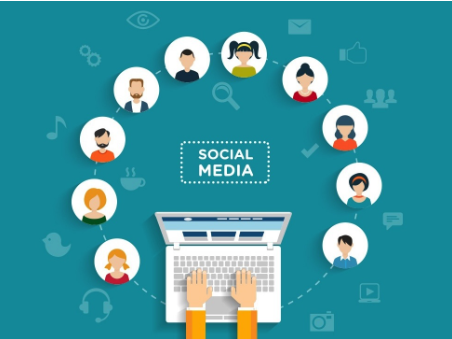Social Media and Mental Health

There is a pervasive and persistent debate about the impact of social media on mental health. The dominant discourse is that social media is detrimental to our social and emotional well-being. However, this technologically deterministic view overlooks the fact that technology use is socially embedded and culturally contingent. Rather than viewing people as passive victims of technology, I examine how people actively interact with and through social media to seek social support and cope with stress in different cultural contexts.
Selected publications:
1. Zhang, R., Eschler, J., & Reddy, M. (2018). Online support groups for depression in China: culturally shaped interactions and motivations. Computer Supported Cooperative Work (CSCW), 27(3), 327–354.
2. Yue, Z., Zhang, R., & Xiao, J. (2022). Passive social media use and psychological well-being during the COVID-19 pandemic: The role of social comparison and emotion regulation. Computers in Human Behavior, 127, 107050.
3. Yue, Z., Zhang, R., & Xiao, J. (2023). Social media use, perceived social support, and well-being: Evidence from two waves of surveys peri- and post-COVID-19 lockdown. Journal of Social and Personal Relationships, 02654075231188185.
——
Self-Disclosure and Social Support
As social media are intricately woven into the fabric of everyday life, people are increasingly expressing their emotions, feelings, and thoughts online. While social media enables people to broadcast messages to a wider audience, it also brings unique challenges, such as context collapse and privacy invasion. Thus, it is imperative to understand the intricacies of self-disclosure, a key component of interpersonal communication. My research has elucidated the motives, processes, and outcomes of self-disclosure on social media.

Selected publications:
1. Zhang, R. (2017). The stress-buffering effect of self-disclosure on Facebook: An examination of stressful life events, social support, and mental health among college students. Computers in Human Behavior, 75, 527–537.
2. Zhang, R., & Fu, J. S. (2020). Privacy management and self-disclosure on social network sites: The moderating effects of stress and gender. Journal of Computer-Mediated Communication, 25(3), 236-251.
3. Zhang, R., Bazarova, N. N., & Reddy, M. (2021). Distress disclosure across social media platforms during the COVID-19 pandemic: Untangling the effects of platforms, affordances, and audiences. Proceedings of the 2021 ACM CHI Conference on Human Factors in Computing Systems.
——
Mobile Health (mHealth) and Behavior Change

As people increasingly use mobile apps and wearable devices to monitor their health, a plethora of research has examined the effects of these technologies on health outcomes. Yet less is known about the mechanisms by which such effects occur. Questions also arise as to how digital health technologies can better support user autonomy and protect privacy. I conducted mixed-method research to examine the role of mobile technologies in mental health support, and users’ data sharing and privacy practices.
Selected publications:
1. Zhang, R., Nicholas, J., Knapp, A. A., Graham, A. K., Gray, E., Kwasny, M. J., Reddy, M., & Mohr, D. C. (2019). Clinically meaningful use of mental health apps and its effects on depression: Mixed methods study. Journal of Medical Internet Research, 21(12), e15644.
2. Zhang, R., Ringland, K. E., Paan, M., Mohr, D., & Reddy, M. (2021). Designing for emotional well-being: Integrating persuasion and customization into mental health technologies. Proceedings of the 2021 ACM CHI Conference on Human Factors in Computing Systems.
3. Zhang, R., Burgess, E. R., Reddy, M., Rothrock, N. E., Bhatt, S., Rasmussen, L. V., Butt, Z. A., & Starren, J. B.(2019). Provider perspectives on the integration of patient-reported outcomes in an electronic health record. Journal of the American Medical Informatics Association Open, 2(1), 73-80.
——
Social Networks and Digital Media
Digital technology has catalyzed a societal shift from geographically bounded local groups to the contemporary network society comprised of sparse, permeable, and dynamic communication networks. Drawing on a social network approach, my research has revolved around the effects of digital technology on social connectivity and communication practices.

Selected publications:
1. Zhang, R., & Fu, J. S. (2020). Linking network characteristics of online social networks to individual health: A systematic review of literature. Health Communication, 1-11.
2. Wang, H., Zhang, R.,& Wellman, B. (2018). Are older adults networked individuals? Insights from East Yorkers’ network structure, relational autonomy, and digital media use. Information, Communication & Society, 21(5), 681–696.
